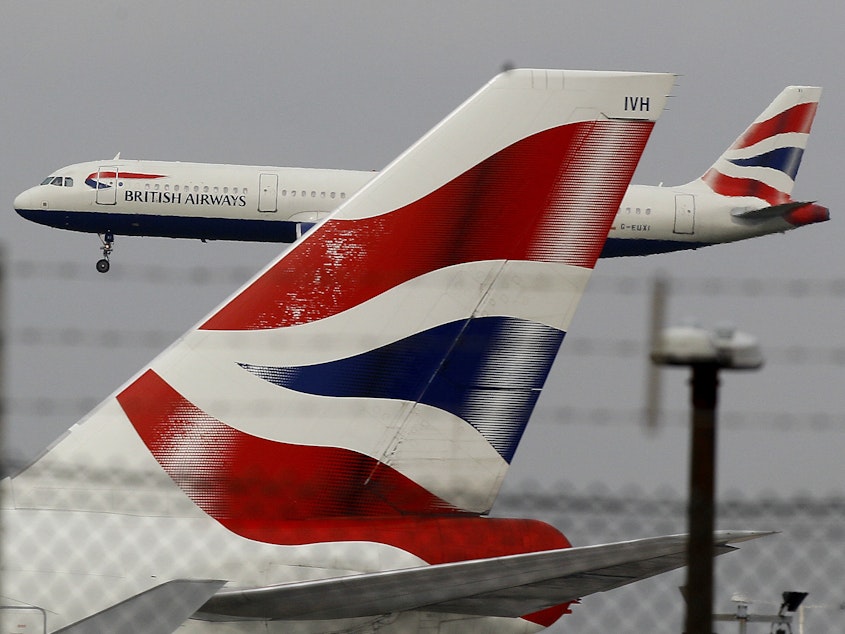British Airways Owner Calls For Digital Health Passes For Passengers

The owner of British Airways is calling for digital health passes for passengers as a step toward getting airlines back in the sky after devastating losses due to the COVID-19 pandemic.
International Airlines Group, which also owns carriers such as Iberia and Aer Lingus, announced Friday a total annual loss of £6.4 billion ($9.8 billion) for the group after passenger traffic plunged by one third in 2020 compared to the previous year. The group's CEO, Luis Gallego, said the company was looking for "a clear roadmap" for scaling back restrictions on travel "when the time is right."
"We're calling for international common testing standards and the introduction of digital health passes to reopen our skies safely," Gallego said.
The International Air Transport Association recently said its "IATA Travel Pass" — a smartphone app that verifies that a passenger has had a negative coronavirus test or has been vaccinated — should be ready "within weeks."
"The key issue is one of confidence," said Vinoop Goel, IATA's regional director of airports and external relations, according to the BBC. "Passengers need to be confident that the testing they've taken is accurate and will allow them to enter the country ... And then governments need to have the confidence that the tests is one which is accurate," he added.
However, it's not yet clear if such a pass would be utilized by airlines or governments.
In January, the U.S. Centers for Disease Control and Prevention began requiring passengers entering the country from abroad to provide a negative coronavirus test before boarding a U.S.- bound flight.
IAG said despite its steep losses, its cargo business had helped prop up the passenger side of the operation. The company made more than 4,000 cargo-only flights last year, with revenue for the sector up strongly.
"Our results reflect the serious impact that COVID-19 has had on our business," Gallego said.
The losses at IAG have been felt worldwide throughout the airline industry, with U.S.-based carriers hit particularly hard.
In January, American Airlines posted its largest annual loss on record — $8.9 billion for 2020, with United Airlines reporting a $7.1 billion loss. Southwest Airlines posted an annual loss of $3.1 billion – its first since 1972.
IATA expects U.S. airlines to see a rebound in demand in 2021, but that it will still be down 45% from 2019, according to an analysis published in November.
In December, the U.S. Treasury began distributing $15 billion in aid approved by Congress to help airlines meet payroll through March 2021, after a similar $25 billion infusion earlier in the pandemic. As part of the COVID-19 relief package working its way through Congress, another $15 billion could go to support airline industry workers. [Copyright 2021 NPR]



